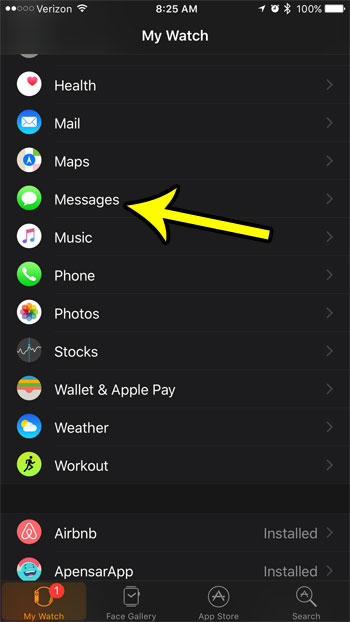

- #Watch the message online how to#
- #Watch the message online full#
Scammers are taking advantage of the government’s early-release measures in a variety of phishing scams designed to steal your superannuation.įor more information, see our Superannuation early-access scams fact sheet. On 22 March, the Australian Government announced eligible individuals would be allowed early access to their superannuation. Many Australians are facing financial hardship due to the COVID-19 pandemic. Inactive super accounts will be locked if not merged immediately.Are you going to apply for the $10 000 superannuation package?.
#Watch the message online full#
Have you worked full time for the last 5 years?. They may refer to the government’s superannuation early release measures, and ask questions such as: checking whether your superannuation account is eligible for various benefits or deals.Ī scammer will call pretending to be from a superannuation or financial service. ensuring you’re not locked out of your account under new rules. offering to help you access the money in your superannuation. The scammers use a variety of excuses to request information about your superannuation accounts, including: The majority of these scams start with an unexpected call claiming to be from a superannuation or financial service. Scammers are taking advantage of people in financial hardship due to COVID-19 by attempting to steal their superannuation or by offering unnecessary services and charging a fee. To verify the legitimacy of a contact, find them through an independent source such as a phone book, past bill or online search. Never provide a stranger remote access to your computer, even if they claim to be from a telco company such as Telstra or the NBN Co. Never respond to unsolicited messages and calls that ask for personal or financial details - just press delete or hang up. Don’t click on hyperlinks in text/social media messages or emails, even if they appear to come from a trusted source. Tips to protect yourself from these types of scams: In the examples below the text messages appear to come from ‘GOV’ and ‘myGov’, with a malicious link to more information on COVID-19. 
These contain malicious links and attachments designed to steal your personal and financial information. Scammers are pretending to be government agencies providing information on COVID-19 through text messages and emails ‘phishing’ for your information. Phishing – Government impersonation scams
#Watch the message online how to#
See our COVID-19 vaccination scams page to find out how to avoid and protect yourself from these and other potential scams relating to COVID-19 vaccines.
fake surveys related to vaccines that offer prizes or early access. offers to pay money as an investment opportunity in the Pfizer vaccine. requesting payment for vaccines or for early access to vaccines. Scamwatch is aware of scams relating to COVID-19 vaccines both in Australia and overseas. If you have any doubts at all, don’t proceed. If your experience does not match any of the examples provided, it could still be a scam. These are a few examples, but there are many more. Visit the Scamwatch news webpage for general warnings and media releases on COVID-19 scams.īelow are some examples of what to look out for. So it’s important to stop and check, even when you are approached by what you think is a trusted organisation. Scammers may pretend to have a connection with you. 
Do not provide your personal, banking or superannuation details to strangers who have approached you. Scammers are hoping that you have let your guard down. Scamwatch urges everyone to be cautious and remain alert to coronavirus-related scams. If you have been scammed or have seen a scam, you can make a report on the Scamwatch website, and find more information about where to get help. Common scams include phishing for personal information, online shopping, and superannuation scams. Scamwatch has received over 6415 scam reports mentioning the coronavirus with more than $9 800 000 in reported losses since the outbreak of COVID-19 (coronavirus).
Phishing – Government impersonation scams. About Scamwatch Expand submenu for "About Scamwatch". News & alerts Expand submenu for "News & alerts". Scam statistics Expand submenu for "Scam statistics". Attempts to gain your personal information. Types of scams Expand submenu for "Types of scams".







 0 kommentar(er)
0 kommentar(er)
